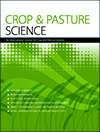Increased soil acidification is a challenge in modern farming. Liming can be an effective, yet expensive soil ameliorant. This research finds that liming is often profitable yet mostly increases emissions, but it does help sustain more diverse land use sequences.
CP24227 Abstract | CP24227 Full Text | CP24227PDF (1.7 MB) Open Access Article





